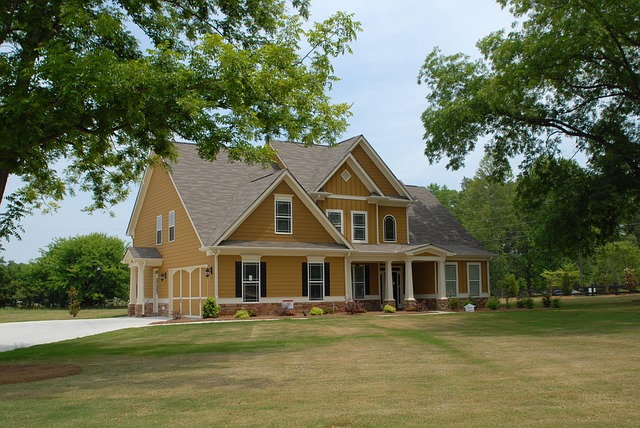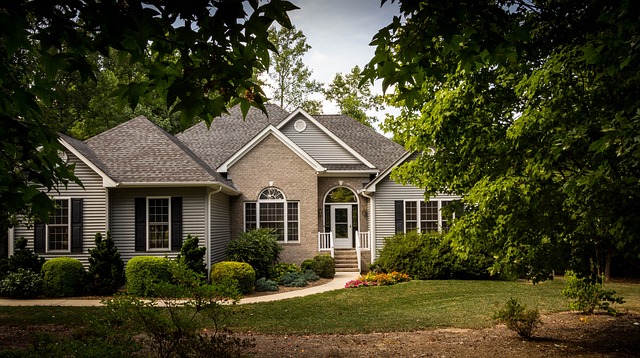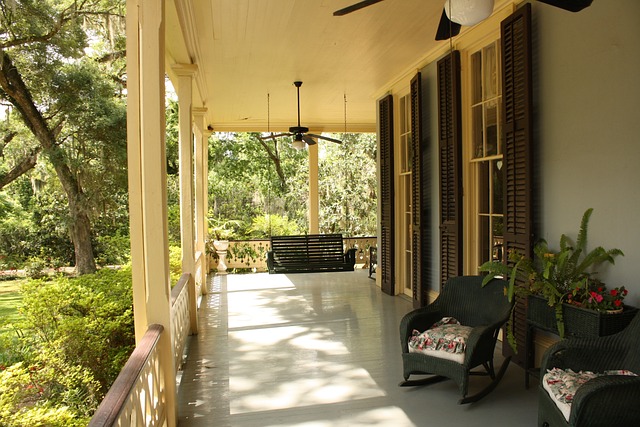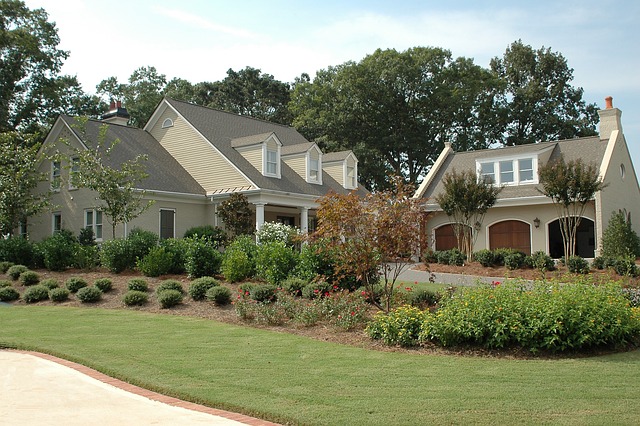In Singapore, Executive Condos (ECs) are popular for their prime locations and exclusive features, governed by clear resale rules from the Housing & Development Board (HDB). A minimum 5-10 year occupancy period is required before sale, with capital gains t…….
Category: Executive Condo Sg
Introduction
Executive Condominiums (ECs) in Singapore, or “executive-condo-sg”, are a unique class of public-private housing hybrid that caters to the middle-income group. These housing units offer a blend of affordability and quality living, with facilities and space that rival those of private condominiums. They play a pivotal role in addressing the housing needs of Singaporeans, particularly as the country grapples with land scarcity and a rising population. This article delves into the intricacies of ECs, their impact on the economy, technological advancements, policy frameworks, and future prospects. Readers will gain a comprehensive understanding of how executive condominiums contribute to Singapore’s dynamic living landscape.
Understanding Executive Condominiums (ECs) in Singapore
Executive Condominiums (ECs) in Singapore are Housing and Development Board (HDB) flat owners who have qualified for a higher loan limit under the Fixed Rate Scheme (FRS). The term “executive-condo-sg” refers to these specific types of condominiums that are designed for upgrading flat owners. The core components of an EC include private facilities such as swimming pools, gyms, and tennis courts, which are not typically found in public housing estates. Historically, ECs have evolved from the HDB’s effort to provide a pathway for flat owners to upgrade their living conditions without the prohibitive costs associated with private property.
The significance of ECs lies in their role as a social mobility tool for residents who aspire to move up the socio-economic ladder. They represent an innovative housing solution that addresses the diverse needs of the population, balancing affordability with the aspirational lifestyle that Singaporeans desire.
Global Impact and Trends
The concept of ECs in Singapore has garnered international attention due to its success in addressing housing challenges within an urban context. Cities around the world face similar issues, including affordable housing shortages and the need for sustainable living solutions. The global impact of “executive-condo-sg” lies in its adaptability and effectiveness as a model that other cities consider in their urban planning and housing strategies.
Key trends shaping the trajectory of ECs include the integration of smart home technologies, eco-friendly designs, and community-centric development plans. These trends are influenced by global shifts towards sustainability and the digitalization of living spaces. Different regions are affected by these trends in unique ways, with some adopting the EC model wholesale while others adapt it to suit local conditions and cultural preferences.
Economic Considerations
The economic aspects of “executive-condo-sg” are multifaceted. From a market dynamics perspective, ECs provide an alternative investment option for both first-time homeowners and investors looking for growth potential in the property market. Investment patterns indicate that ECs offer relatively affordable entry points into property ownership while maintaining resale value.
ECs play a significant role in the economic systems of Singapore by ensuring a steady supply of housing to meet demand, thereby supporting the local construction industry and associated sectors such as real estate services, financing, and interior design. The economic impact extends to job creation and the stimulation of related industries, contributing to national GDP growth.
Technological Advancements
Technology has significantly influenced the development and management of ECs in Singapore. Smart home technologies have been integrated into these condominiums, offering residents enhanced security features, energy-efficient appliances, and connected living experiences. The Internet of Things (IoT) enables residents to control their homes through smart devices, from anywhere at any time.
The future potential of technological advancements in ECs is vast. With the advent of artificial intelligence, virtual reality for property viewings, and blockchain for secure transactions, the living experience in ECs is set to become even more sophisticated and efficient. These advancements promise to further enhance the value proposition of ECs as a desirable housing option.
Policy and Regulation
The policy and regulatory framework governing “executive-condo-sg” is comprehensive, reflecting Singapore’s commitment to balanced urban development. Key policies include the minimum occupancy period, resale levy, and the income ceiling for eligible applicants. These regulations are designed to maintain the affordability of ECs while ensuring they do not become speculative investment vehicles.
Legislative frameworks are regularly reviewed to adapt to changing market conditions and demographic shifts. The government’s active role in shaping policy ensures that ECs continue to meet the needs of Singaporeans, maintaining their status as a vital component of the nation’s housing strategy.
Challenges and Criticisms
Despite its success, “executive-condo-sg” faces challenges and criticisms. One of the primary issues is the potential for ECs to become overly commercialized, detracting from their original intent as a public-private housing solution. There are also concerns regarding the long-term sustainability of EC living, given the rapid pace of technological advancements and changing societal needs.
Actionable solutions to these challenges include implementing stricter regulations on development and ensuring that upgrading programs remain inclusive and accessible. Additionally, fostering a sense of community among residents can address criticisms related to isolation and disconnection within urban living environments.
Case Studies: Success Stories of Executive Condominiums in Singapore
Several executive condominiums in Singapore have become benchmarks for successful urban living. These case studies provide valuable insights into the factors that contribute to the success of ECs, including strategic location, design excellence, and community engagement. Residents of these developments often report high levels of satisfaction with their living conditions and the lifestyle afforded by their EC homes.
Conclusion
Executive Condominiums in Singapore represent a forward-thinking approach to urban housing that balances affordability, sustainability, and quality of life. The global interest in this model underscores its potential as a solution for cities worldwide facing similar housing challenges. As “executive-condo-sg” continues to evolve with technological advancements and policy adjustments, it remains a key component in Singapore’s dynamic living landscape. Its success is a testament to the innovative spirit of Singapore and its commitment to creating a home for every Singaporean.
Unveiling Singapore’s Executive Condos: Luxury Living, Smart Investments
Executive Condos (ECs) in Singapore, developed by public authorities like HDB, offer a unique blend of luxury and affordability for high-income residents. These modern properties with premium amenities cater to professionals and families, providing convenient…….
Understanding Executive Condo Launch Prices in Singapore
In Singapore, Executive Condos (ECs) offer a mix of accessibility and exclusivity. Launch prices for ECs vary widely based on location, size, amenities, and market desirability. Key factors influencing these prices include proximity to business hubs and public…….
Unraveling Executive Condo SG: Eligibility Requirements Explained
In Singapore, Executive Condos (ECs) offer a unique housing choice for young professionals and families seeking balance between urban convenience and comfort. To qualify, applicants must meet HDB criteria including 5 years' continuous residency and financ…….
Who Can Buy an Executive Condo in Singapore: A Comprehensive Guide
In Singapore, Executive Condos (ECs) are popular among first-time homebuyers due to their competitive pricing and government incentives. To purchase an EC, individuals must meet specific criteria set by the Housing & Development Board, including age, prope…….
Top Executive Condos for Investors in Singapore: Unlocking High Returns
Executive Condos (ECs) in Singapore represent a compelling option for both luxury living and savvy investing. These government-offered properties cater to those seeking premium amenities and strategic locations without breaking the bank. Key factors for succes…….
Executive Condo SG 2023: Market Trends & Predictions for Investors
The Executive Condo (EC) market in Singapore is booming, providing an affordable luxury option with high-end amenities and innovative design. Driven by demand for eco-friendly and tech-integrated homes, 2023 sees a focus on sustainability and smart home soluti…….
Executive Condos Near Schools: A Family-Friendly Option in SG
Executive Condos (ECs) in Singapore offer modern luxury housing with government-regulated affordability, ideal for professionals and families. Located near transportation and top-rated schools, these condos provide a vibrant, family-centric lifestyle with adva…….
Discover Ideal Living: Executive Condos Near Green Spaces in Singapore
Singapore's Executive Condos (ExecCondos) are a sought-after real estate segment for high-income professionals, offering luxury living with limited availability. These condos blend modern amenities and green spaces, appealing to those seeking urban tranqu…….
Executive Condo SG: Unlocking Price Appreciation Trends and Strategies
The Executive Condo (EC) market in Singapore is a niche yet significant real estate segment catering to high-income earners, driven by HDB policies and a robust economy. Key factors influencing EC prices include market health, buyer confidence, limited supply,…….









